News from the Institute
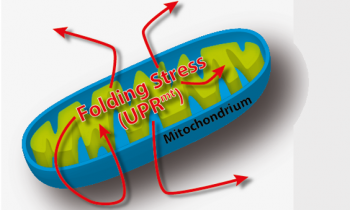
The European Research Council (ERC) awarded one of its prestigious Starting Grants to Emmy Noether group leader Christian Münch. The grant provides € 1.44 Mio to carry out a challenging project dubbed ‘mitoUPR’, in which Christian plans to unravel the impact of the mitochondrial unfolded protein response (UPRmt) on the cellular environment in mammalian cells. The UPRmt is a poorly understood mitochondrial stress response that activates upon protein misfolding in mitochondria.
... (read more)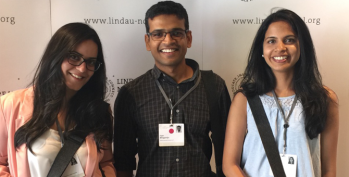
Once every year, around 30 Nobel Laureates convene at Lindau to meet more than 500 young scientists from all over the world. This year, Hadir Marei, Sissy Kalayil and Sagar Bhogaraju, three postdoctoral scientists from IBC2, have been selected for the 68th Lindau Nobel Laureate Meeting, dedicated to Physiology and Medicine.
“It was an unforgettable experience exchanging with scientists from all parts of the world, different generations and backgrounds and having the chances to meeting so many Nobel Laureates at one place”, was the résumé of all three researchers.
... (read more)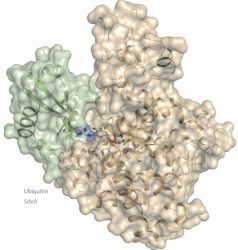
Antimicrobial resistance (AMR) is a major medical problem worldwide, impacting both human health and economic well-being. Scientific efforts are underway to achieve better control of infections.
One promising approach is to limit damage to host cells and tissues in the course of a bacterial infection by blocking the microbial processes that cause such damage. In today’s online issue of Nature, the laboratory of IBC2 Director Ivan Dikic reports a breakthrough substantiating the feasibility of this novel strategy.
... (read more)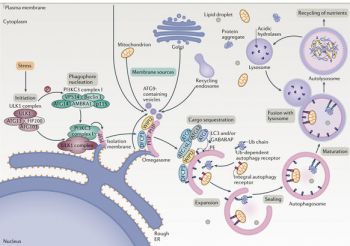
Autophagy is deregulated in cancer, neurodegeneration, and many other human diseases. Around the globe, laboratories are revealing more and more mechanistic details on this versatile recycling machinery. “Autophagy currently enjoys star status”, writes IBC2 Director Ivan Dikic in his latest review on the topic.
Together with colleague Zvulun Elazar from Weizmann Institute of Science (Rehovot, Israel), he has now given a comprehensive overview of the medical implications of autophagy, published online in Nature Reviews Molecular Cell Biology.
... (read more)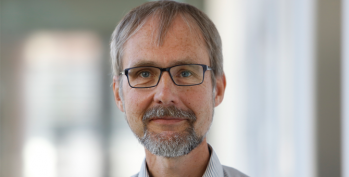
IBC2 group leader Volker Zickermann was appointed as apl (“ausserplanmässiger”) professor at Goethe University (GU). Volker studied biochemistry at the University of Hannover and obtained his PhD at GU Frankfurt. He then moved to the group of Mårten Wikström in Helsinki where he started to work on respiratory complex I, at that time, however, concentrating on the enzyme complex from bacteria.
... (read more)